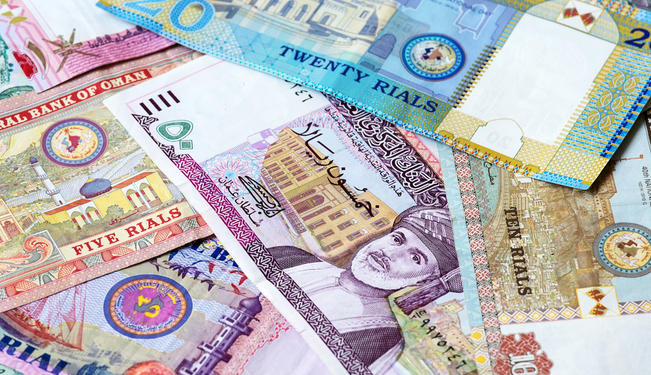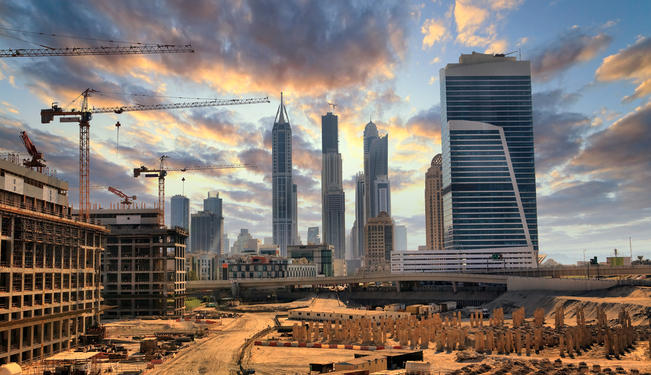Political economy in North Africa is based on the recurrence of “vicious circles.”
The wave of popular revolts that sparked in the Middle East and North Africa (MENA) in 2011 had different repercussions on each country, depending on the prevalent economic, political and social structures. Indeed, some of these protests toppled regimes, as was the case in Tunisia, Egypt and Libya, while others were successfully terminated either by the means of oppression or pseudo-political reforms by established ruling institutions like in Morocco and Algeria.
The motors of these protests have been extensively covered for the wide region of the Middle East. The general rhetoric in this sense assimilates social unrest with the deteriorated economic conditions of most of the population, coupled with the demographic transition as the working age segment of society grows faster in the Middle East than anywhere else in the world.
A closer look into the main slogans chanted by protesters, however, would reveal that there is much more to the social unrest in the MENA region than mere economic factors, and that the political economy approach offers a more comprehensive analysis.
The aim of the present article is to explore some of the political economy motors of the protests, and assess the evolution of the North African institutional environment and its impact on regional economic performance.
Bread, freedom and social justice were repeatedly identified as the main “fuel” of the demonstrations. The issue that comes to mind here is whether these popular revolts were capable of altering the existing social contracts and economic structures, and replace them with viable economic and political models.
While events are still unraveling and social unrest is still ongoing in the region, it would be ill-advised to attempt to predict the future. What would be helpful, however, is to examine the rooted political economy structures of countries in the region, in order to understand the implications of the current policies on macro-economic outlook and political stability. As experts have extensively covered the wider Middle East, this article focuses on North African countries.
Underlying Political Economy Structures
Analysts have listed several political economy factors that led to the outburst of regime-changing revolts in Tunisia, Egypt, and Libya and are threatening the sustainability of existing regimes in Morocco and Algeria. These factors include a demographic transition coupled with a significant lack of employment opportunities, rooted institutional deficits, the relative expansion of the middle-class, and of private entrepreneurship faced with an ever-growing monopoly of the state over the economic sector.
That said, and despite acknowledging that no unique reason is sufficient to explain the social unrest that sparked in 2011 and is still ongoing in the region, experts tend to single out inequality and poverty as the main explanatory factors and ignore or marginalize the political charge of the revolts.
The 2013 Human Development report ranks Libya in position 64, Algeria in 93, followed closely by Tunisia in 94, Egypt in 112, and Morocco in 130. These ranks have barely changed since the mid-2000s.
Although some indicators have improved over the last few decades, including health, life expectancy and GDP per capita growth, other factors remain far below the average of medium human development countries. Official figures also reveal significant disparities between the North African countries as factors like education, income per capita, and life expectancy vary from one neighbor to the other.
Education is a case in point with the percentage of the population with at least secondary education being 51.2% in Egypt, 49.6% in Libya, followed by Tunisia and Algeria with 37% and 24.1% respectively, and finally Morocco with only 28%.
There is room to argue that it is very unlikely that poverty and inequality are the main motors of the social unrest in North Africa. Although it is undeniable that the region suffers from chronic poverty and inequality, these remain less flagrant than in other regions of the world.
The universal measure of inequality, the GINI Index, “measures the extent to which the distribution of income or consumption expenditure among individuals or households within an economy deviates from a perfectly equal distribution.” It reveals that emerging countries like China and Brazil suffer from more inequality than North African countries.
Further, these theories do not explain the timing of the protests and why the uprisings happened. On many occasions over the past decades, conditions of uprisings were met but did not deliver. Protesting in some North African countries can be part of the culture, as almost every day of the week is marked by some kind of popular manifestation of varying sizes and for varying reasons (for example, unemployment, human rights violations and bread riots).
As argued by Daron Acemoglu and James Robinson, political transitions do not occur according to calculated agendas and do not adhere to a “one-fits-all” model. Where the cost of revolting is lower than that of the existing political economic structure, individuals would attempt to alter the present order.
Therefore, North African countries, characterized by a combination of high unemployment, a growing young population, and increasing inequality are more prone to instability and revolt movements. Gonzalo Escribano argues, with regards to the Arab revolts: “The cost of autocracy simply no longer compensated for the meager economic benefits delivered by North African governments.”
A Significant Lack in Structural And Institutional Reforms
Over the past few decades, North African countries have engaged in a number of economic and financial reforms and fully integrated into the world economy, although at varying levels. These economies have prioritized macro-economic stability and attempted to subscribe to international financial standards, through measures ranging from liberalization of exchange rates, tax reforms and privatization, among others.
The levels of implementation of these reforms are country-dependent. Nevertheless, the region managed to maintain relatively high economic growth rates during the recent international financial crisis and developed resilience to external shocks, although at the expense of small- and medium-size enterprises, informal sector workers and households. The banking systems of Egypt, Morocco and Tunisia, in particular, have also subscribed to the Basel II banking regulation and supervision reforms which, in theory, gives them the stamp of “good students” in the international financial system.
The picture painted by the various economic and financial reforms implemented in the region, however, ignores rooted institutional deficiencies. These are crucial to fully understand the social unrest that has swept the region.
Rooted Institutional Deficiencies
A brief overview of the institutional quality of each of the studied countries provides a better insight into the impact of the implemented financial and economic reforms. The Worldwide Governance Indicators developed by the World Bank Development Research Group aim at reporting on the institutional health within individual countries through six main aggregate governance indicators, including voice and accountability, political stability and absence of violence.
In 2011, Egypt scored the lowest among its North African neighbors in terms of “control of corruption.” All countries score worryingly low levels on “voice and accountability,” with Egypt being rated the worst, followed by Morocco and Tunisia. The rule of law indicator is not sufficiently developed either, with all North African countries flirting with the 50th percentile rank in 2011.
The low level of participation, transparency, and information-sharing allowed by the institutional infrastructure in North African countries provide fertile grounds for pressure and lobbying from powerful interest groups pursuing personal interests.
Vicious Circles
The absence of checks and balances facilitated the establishment of what Acemoglu and Robinson called “vicious circles.” These circles are based on extractive institutions controlled by a small elite that pursue their vested private interests at the expense of the wider population.
These circles are recurrent in North Africa and benefited the Ben Ali family network, Mubarak’s business interests, and Qaddafi’s tribal setting. Many argue that similar networks are perpetuated in Algeria through President Abdelaziz Bouteflika’s family ties and network of generals and politically connected businessmen; in Egypt through rooted military control of strategic industrial sectors ranging from the construction and steel industry to tourism and agriculture; and in Morocco by prioritization of the palace’s economic and commercial interests and ambitions.
It is worth noting that if the political structure of North African countries was characterized by strong and efficient checks and balances, politicians and policy-makers would have less freedom to influence the countries’ political economy according to their own interests. Individual economic and social agents would then have less leeway to behave in a manner serving their private interest by exercising disproportionate lobbying influence on politicians.
In the same fashion, the existence of a strong legal and judicial framework that enforces property rights would allow the efficient supervision of international, economic, and financial standards and provide private market participants with the ability to monitor and control economic activities. Levels of corruption would also be brought down and the economic and banking sectors’ performance would improve.
Going beyond mere economic factors, the lack of transparency, symmetrical access to information and practical accountability to the public — as exclusive networks hold power over the political economy structures — represent a significant stumbling block to political transition and make North African economies more prone to economic and social instability.
The views expressed in this article are the author’s own and do not necessarily reflect Fair Observer’s editorial policy.
For more than 10 years, Fair Observer has been free, fair and independent. No billionaire owns us, no advertisers control us. We are a reader-supported nonprofit. Unlike many other publications, we keep our content free for readers regardless of where they live or whether they can afford to pay. We have no paywalls and no ads.
In the post-truth era of fake news, echo chambers and filter bubbles, we publish a plurality of perspectives from around the world. Anyone can publish with us, but everyone goes through a rigorous editorial process. So, you get fact-checked, well-reasoned content instead of noise.
We publish 2,500+ voices from 90+ countries. We also conduct education and training programs
on subjects ranging from digital media and journalism to writing and critical thinking. This
doesn’t come cheap. Servers, editors, trainers and web developers cost
money.
Please consider supporting us on a regular basis as a recurring donor or a
sustaining member.
Support Fair Observer
We rely on your support for our independence, diversity and quality.
Will you support FO’s journalism?
We rely on your support for our independence, diversity and quality.






